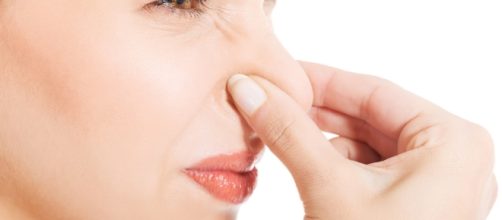People go on a strict diet to lose weight for a variety of reasons: sports purposes for athletes such as boxers, health benefits for people who are overweight, or, as it is often the case, for what is socially perceived as a better-looking appearance.
Idiosyncratic or somewhat extreme methods of weight-cutting are not unheard of. Just three years ago people were crazy over Bulletproof Coffee – a version of coffee made with low-mold coffee beans, unsalted butter and coconut oil that was and is believed to be able to give you "suppressed hunger," "steady lasting energy," and "mental clarity." People can even go so far as to go on a fasting diet in which they eat significantly less on certain days and more on others, or an intermittent fasting diet (behind which does have some scientific evidence) in which they refrain from eating during certain hours.
With all these being said, what would they do if olfaction was all they had to give up to lose pounds, and now that it may actually be the case, what are people going to do about it?
Effects of eliminating sense of smell in weight-gaining
In a recent research conducted by the University Of California Berkeley, three groups of mice – the temporarily smell-deficient, the smell-retained, and the smell-boosted – were given the same high-fat diet for three weeks, and the result was astounding.
"Sensory systems play a role in metabolism. Weight gain isn't purely a measure of the calories taken in, it's also related to how those calories are perceived," said one of the authors, Andrew Dillin.
At the end of the experiment, the smell-deficient mice were able to gain only at most 10 percent more weight, going from 25-30 grams to 33 grams, while the smell-retained mice gained about 100 percent more – up to 60 grams – and the smell-boosted even more.
In other words, what the temporarily destroyed olfactory neurons entailed was a 90-percent reduction in weight-gaining efficiency – that is, if you are a mouse.
Possible applications to humans
Still, for us humans, this may be the future of weight-losing. "If we can validate this in humans, perhaps we can actually make a drug that doesn't interfere with smell but still blocks that metabolic circuitry. That would be amazing," Andrew Dillin continued.
Perhaps it can also benefit people who have trouble gaining weight, if either drugs that can boost our Olfactory System are ever invented or, on the flip side, if there are ways to enhance the smell of food. But before any of these happens, we shall first see how people are going to react to this potentially groundbreaking news. Weird YouTube documentaries? "New 'diet' sweeping the nation?" More academic research studies on topics like this? Stay tuned.


